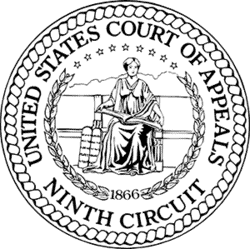Coming on the heels of yesterday's decision by the U.S. Supreme Court not to take up any of the 7 petitions on same-sex marriage it was considering, the 9th Circuit Court of Appeals today struck down bans on same-sex marriage in Idaho and Nevada.
In two rulings on Tuesday, a three-judge panel on the U.S. Ninth Circuit Court of Appeals ruled against the bans on same-sex marriage in Idaho and Nevada. Writing for the court, U.S. Circuit Judge Reinhardt says judges found the law were unconstitutional by subjecting them to heightened scrutiny.
“We hold that the Idaho and Nevada laws at issue violate the Equal Protection Clause of the Fourteenth Amendment because they deny lesbians and gays who wish to marry persons of the same sex a right they afford to individuals who wish to marry persons of the opposite sex, and do not satisfy the heightened scrutiny standard we adopted in SmithKline,” Reinhardt writes.
The Ninth Circuit decision affirms a lower district court ruling against Idaho's ban on same-sex marriage, but it also reverses a court rulings affirming the ban on same-sex marriage in Nevada that was handed down in 2012 before the Supreme Court decision against the Defense of Marriage Act.
Read the decision, AFTER THE JUMP…
Back in September, our legal editor Ari Ezra Waldman noted that the judges were highly skeptical of the anti-equality arguments, and predicted this unanimous decision.
Three progressive judges, though more muted in their questioning than Judge Posner was at the Seventh Circuit, were no less skeptical of the homophobic, ahistorical, misleading, misdirected arguments against allowing gays to marry. The hearing was a testament to how far we have come since the last time marriage equality was before Judge Reinhardt. The 2 to 1 decision in the Prop 8 case was an exercise in caution, an attempt to give the Supreme Court a way to support marriage equality without jumping ahead of too much of country. But at that time, we didn't have Windsor, we didn't have several other appellate courts declare bans unconstitutional, and we didn't have an emerging consensus written down in appellate and district court opinions. At that time, we had only a handful of marriage equality states; today, we have 19 states and the District of Columbia with equal marriage, covering more than 44 percent of the population. Today's hearing will result in an opinion with none of the hedges and narrowings of Perry. It will likely be unanimous and another sign that this debate is nearing its end.
Stay tuned for more updates on this breaking story.




